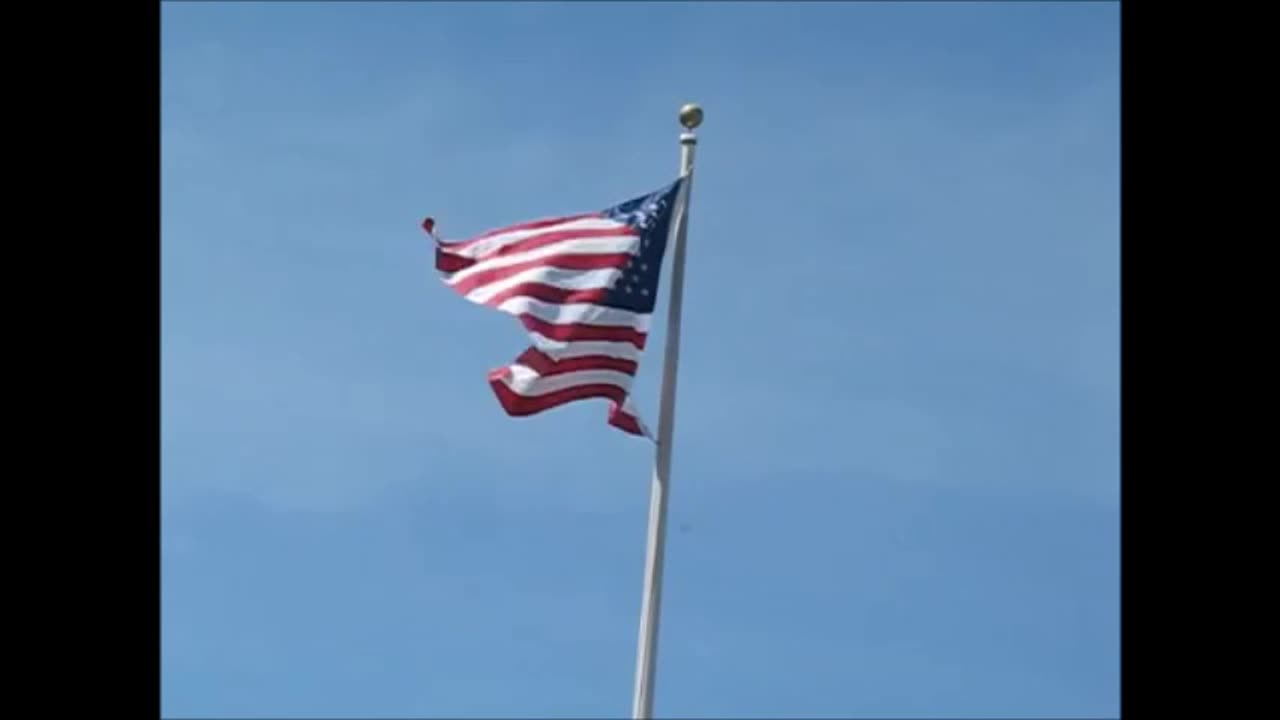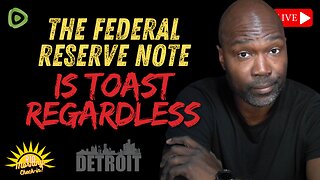Premium Only Content

Sing Your Song for America. A short Americana patriotic song.
Sing Your Song for America
Sing your song for America
Sing it loud and free
Sing it for the world to hear
Sing your song for me
Sing your song for America
Sing with harmony
Sing it so the words are clear
Sing your song for me
The future may look darker
But we've been here before
I can see the bright lamp lit
Beside the golden door
Sing your song for America
A lovely melody
Sing the song from coast to coast
Sing your song for me
Words and music by The Author.
Copyright 2024
All Rights Reserved
BMI
Flag video:
Happy July 4th Everyone!
by Eldon James Brown
Publication date 2014-06-23
Usage Public Domain Mark 1.0
https://archive.org/details/HappyJuly...
The history of U.S. patriotic songs is a reflection of the country’s evolution, capturing moments of unity, triumph, and reflection on the nation's ideals. These songs have served various purposes, from rallying support for wars to celebrating American pride and questioning societal values.
Patriotic music in America began during the colonial era, when settlers brought European traditions with them. Early songs were adapted from European tunes, with lyrics that initially expressed loyalty to the British Crown. However, as tensions with Britain grew, music became a tool for expressing the desire for independence. Songs like William Billings' "Chester" (1770) rallied the colonies against British rule and marked the beginning of distinctly American compositions.
During the Revolutionary War, music played a crucial role in uniting the American colonists. "Yankee Doodle," originally a British mockery, was embraced by the colonists as a symbol of pride and defiance. "The Star-Spangled Banner," written by Francis Scott Key in 1814, became a symbol of American resilience during the War of 1812. The anthem's imagery of the American flag flying after a battle captured the determination of the American people.
The 19th century saw the rise of patriotic songs celebrating American ideals, especially during times of expansion and conflict. Songs like "America the Beautiful," written by Katharine Lee Bates in 1895, celebrated the country’s natural beauty and the virtues of its people. The Civil War further amplified the role of music in shaping national sentiment. Songs like "Battle Hymn of the Republic" became anthems of the Union cause, while "Dixie" became a symbol of Southern pride and resistance.
The World Wars marked a new era for patriotic music. During World War I, songs like George M. Cohan’s "Over There" encouraged Americans to support military action. The upbeat song became synonymous with the American war effort. In World War II, Irving Berlin’s "God Bless America" emerged as an emotional anthem of national unity and divine protection, particularly in a time of global crisis. Its simple message resonated deeply with Americans, particularly as the U.S. became more involved in world affairs.
In the post-war years, particularly during the 1960s, the role of patriotic music began to evolve. The Civil Rights Movement and anti-Vietnam War protests led to songs that not only expressed pride but also critiqued the nation's failures. Woody Guthrie’s "This Land Is Your Land" (1940) became a beloved anthem, but its lyrics also highlighted issues of inequality and the gap between the American ideal and reality.
The 1980s and 1990s saw the emergence of songs that expressed both pride and disillusionment with American society. Bruce Springsteen's "Born in the U.S.A." (1984) became iconic for its chorus of American pride, but its lyrics about a Vietnam War veteran's struggles also reflected the country's internal contradictions.
In the 21st century, patriotic music continues to serve multiple purposes. While "The Star-Spangled Banner" remains central, its performance has sparked debates over protest and free speech. Contemporary songs like Lee Greenwood's "God Bless the U.S.A." continue to celebrate American pride, while others, such as Green Day's "American Idiot" (2004), critique political and cultural directions in the country.
The history of U.S. patriotic songs is an ongoing reflection of American identity. These songs have united citizens in times of war, celebrated the nation’s triumphs, and provided a platform for questioning and critiquing American values. They remain a vital part of the nation's history, always reflecting the ever-changing landscape of the American experience.
-
 LIVE
LIVE
Side Scrollers Podcast
2 hours agoINSANE Illegal Migrant Propaganda Xbox Game + Paypal REFUSES To Pay Dev + More | Side Scrollers
221 watching -
 LIVE
LIVE
JuicyJohns
4 hours ago $1.35 earned🟢#1 REBIRTH PLAYER 10.2+ KD🟢
136 watching -
 LIVE
LIVE
The Mel K Show
1 hour agoMORNINGS WITH MEL K - The Future of the Constitutional Republic: Local Action for National Impact 8-26-25
657 watching -
 LIVE
LIVE
The Shannon Joy Show
2 hours ago🔥🔥TACO Trump Rug Pulls AGAIN - Deploying His Fascist Police State In Red States NOT Blue.🔥🔥
227 watching -
 LIVE
LIVE
Grant Stinchfield
1 hour agoBig Pharma’s Dirty Secret: It Writes the Medical School Curriculum
99 watching -
 1:10:58
1:10:58
vivafrei
3 hours agoBanning the Burning of the Flag? Raja Jackson Assault & Some Insanely Stupid Takes! NYC Chems & MORE
29.1K25 -
 LIVE
LIVE
LFA TV
6 hours agoLFA TV ALL DAY STREAM - TUESDAY 8/26/25
4,763 watching -
 27:39
27:39
Crypto.com
3 hours ago2025 Live AMA with Kris Marszalek, Co-Founder & CEO of Crypto.com
39.7K3 -
 LIVE
LIVE
Trumpet Daily
1 hour agoTrumpet Daily LIVE | Aug. 26, 2025
374 watching -
 34:31
34:31
Rethinking the Dollar
1 hour agoTrump Pressures FOMC: Is a September Rate Cut Guaranteed? | Morning Check-In: Let's Talk...
10.9K